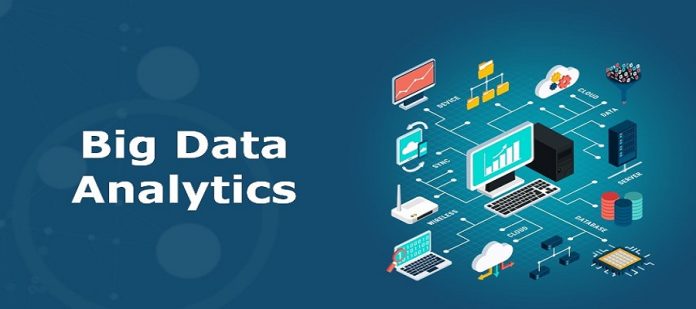Big Data analytics is an influential player in the quickly changing field of data-driven decision-making since it transforms how businesses get meaningful insights from massive amounts of data. We will examine the foundations of big data analytics in this blog and its several varieties, uses, benefits, drawbacks, and difficulties. We will also take a look ahead at this rapidly evolving topic.
What is Big Data Analytics?
Analyzing vast and varied datasets for hidden patterns, correlations, and other important information is known as big data analytics. By integrating cutting-edge technologies to manage enormous volumes of organized and unstructured data, it goes beyond conventional data analysis techniques.
Big Data Analytics Types:
- Using historical data highlights to comprehend historical trends is the main goal of descriptive analytics.
- Determines the reasons behind historical occurrences or patterns using diagnostic analytics.
- Predictive analytics forecasts future trends by using machine learning and statistical algorithms.
- Prescriptive analytics: Makes suggestions for potential courses of action to maximize results.
How Big Data Analytics Works:
To find valuable insights, the process entails gathering, processing, and analyzing enormous databases. Spark and Apache Hadoop are two examples of technologies that are essential for processing and managing enormous amounts of data.
Big Data Analytics Applications:
- Business intelligence: Improving the ability to make decisions.
- Healthcare: Personalized therapy and disease prevention through predictive analytics.
- Finance: Fraud detection and strategy optimization for investments.
- Marketing: Analysis of consumer behaviour and targeted advertising.
- Production: Process optimization and predictive maintenance.
Big Data Analytics Advantages:
- Data-driven decision-making is made possible for companies through informed decision-making.
- Increased Productivity: Finding areas for process simplification and improvement.
- Competitive Edge: Acquiring knowledge that provides a commercial advantage.
- Optimized Customer Experience: Customizing offerings according to client habits and inclinations.
Big Data Analytics Benefits:
- Finding inefficiencies and allocating resources as efficiently as possible reduce costs.
- Innovation: Identifying fresh possibilities and fashions.
- Risk management is the early detection and reduction of possible hazards.
- Real-time insights: Quick access to vital data for prompt decision-making.
Big Data Analytics Disadvantages:
- Privacy Issues: Managing private information might give rise to privacy concerns.
- Complexity: Big data solutions can be difficult to manage and implement.
- Cost: Initial setup and maintenance expenses may be high.
- Skill Gap: A lack of qualified big data analytics professionals.
Big Data Analytics Challenges:
- Data Security: Ensuring the confidentiality and integrity of the data.
- Scalability: Handling the increasing volume of data over time.
- Integration: Bridging the gap between diverse data sources.
- Regulatory Compliance: Adhering to data protection laws and regulations.
Future of Big Data Analytics:
With the merging of artificial intelligence (AI) and machine learning (ML), the future holds even more developments in Big Data Analytics. Real-time analytics, automation, and improved data protection will probably characterize this revolutionary technology’s next stage.
In conclusion, big data analytics is becoming an essential tool for businesses in a variety of sectors. While there are many advantages to big data analytics, companies will need to overcome obstacles and keep up with technology developments if they want to fully utilize it in the years to come.








